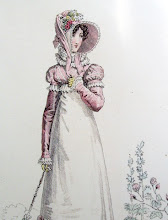You would think, by now, a year-and-a-half after I dropped everything to 'become' a writer, that it'd be getting easier to call myself one. You would be wrong.
I have a rather menial editorial part-time job at the moment, and yesterday one of the editors asked me to submit some reviews for one of the guidebooks we publish. They need writers, and I'm doing a writing course - no great leap of the imagination there.
'Of course,' I said. 'I'll give it a go.'
Give it a go?
No, I won't 'give it a go', I'll do it, and I'll do a kick-arse job of it, because I'm a writer and I'm pretty good, if I pull my finger out.
But I had to give some wishy-washy answer like, 'I'll give it a go.' All you non-Australian writers out there who have self-doubts: imagine also growing up in a society where the worst social crime is to have tickets on yourself.
Later that day, just before my evening Novel class, I stopped to get a hot chocolate from the French waffle place in Degraves St. I was chatting to the owner, and it came up that I was studying over the road. He asked me what course I was doing, naturally, and I said Writing.
'Oh, you are a writer?' he asked, with great French enthusiasm.
'Um, well I'm trying to be,' said Miss Wishy-washy.
'No, you are. You have to believe in yourself,' he said. 'Good luck with it.'
I don't want to stereotype (but here I go), but it strikes me that the French don't really do self-doubt. Existential angst maybe, but I suspect they don't have an equivalent phrase to 'up yourself'.
I'll be going back to the waffle place regularly, I think.
I was verbally abused in
19 hours ago

